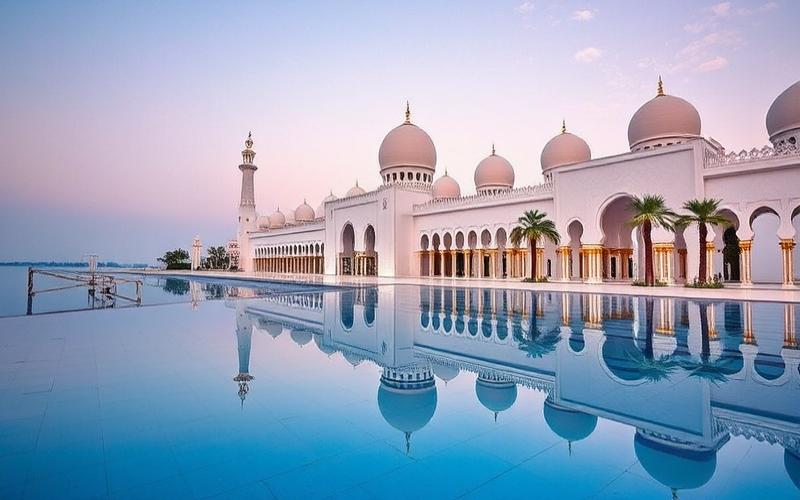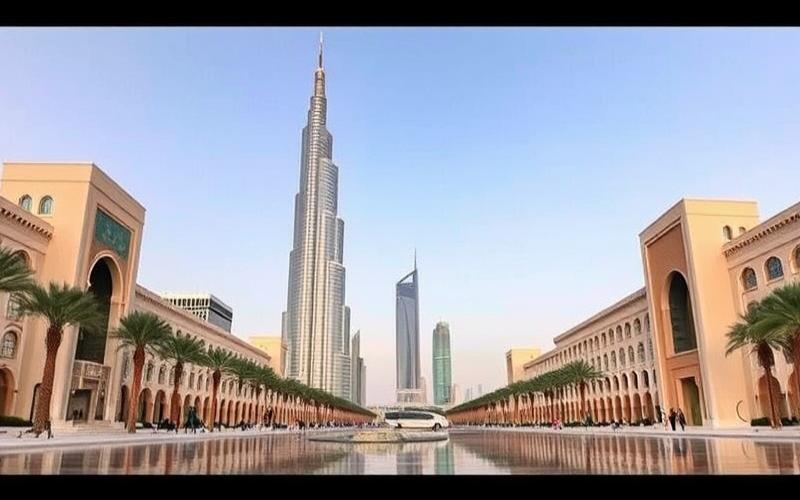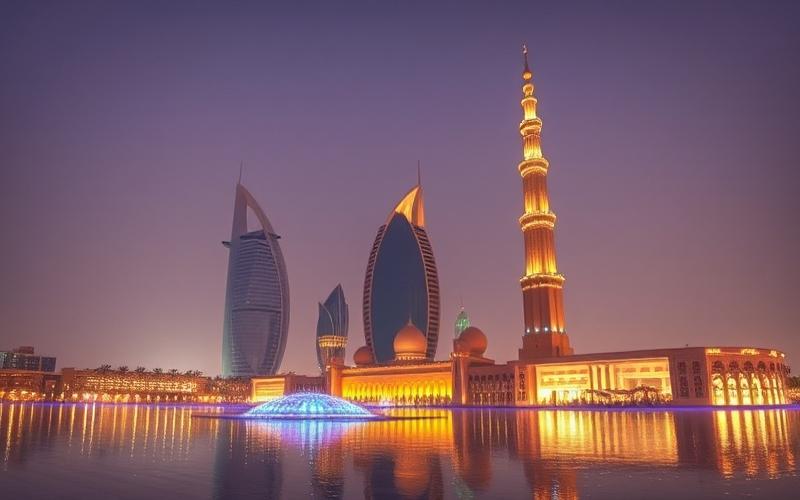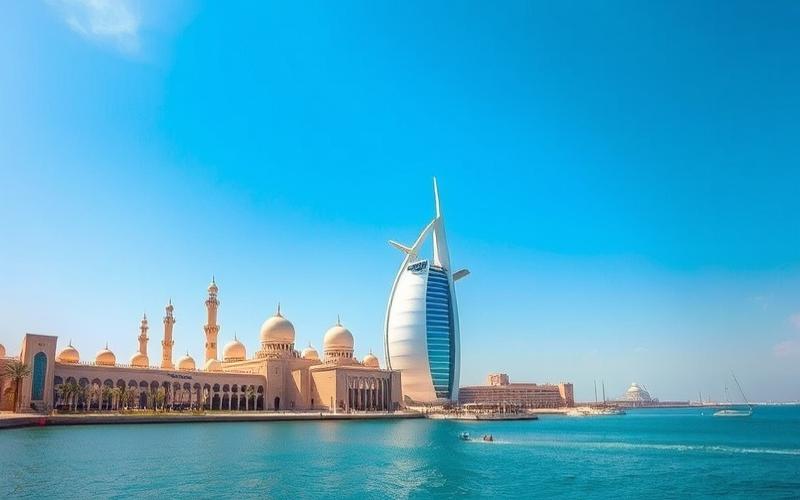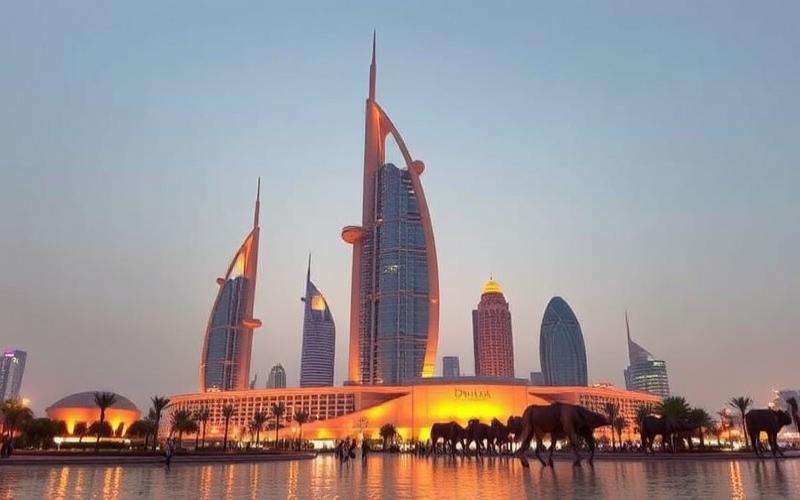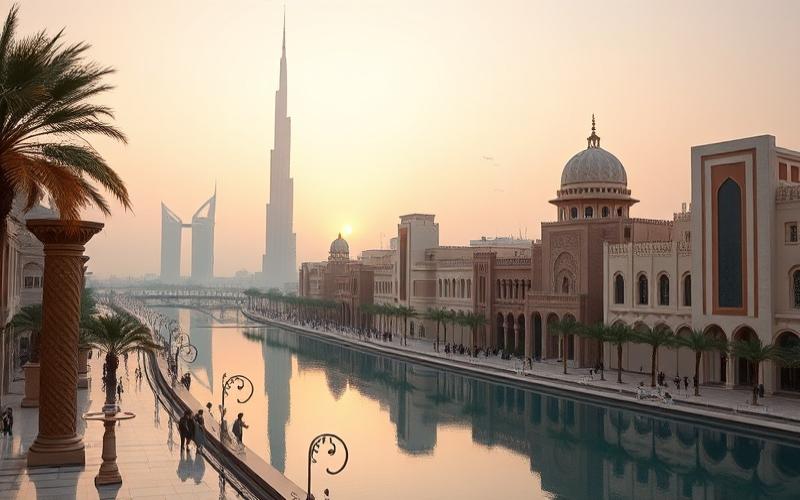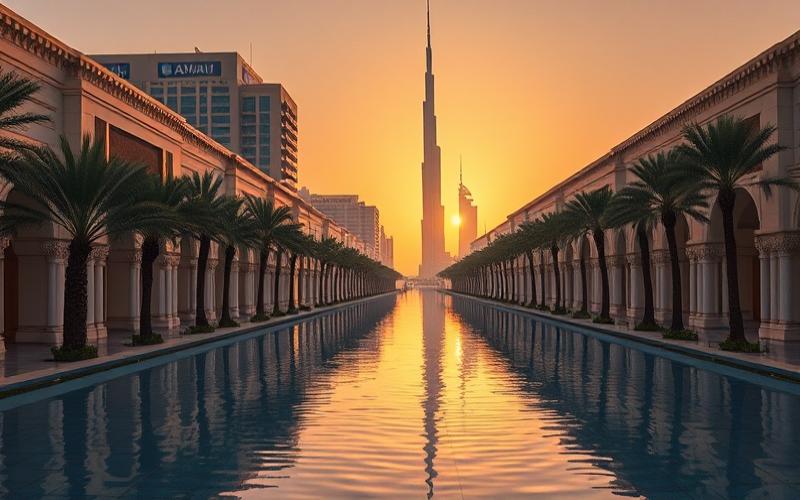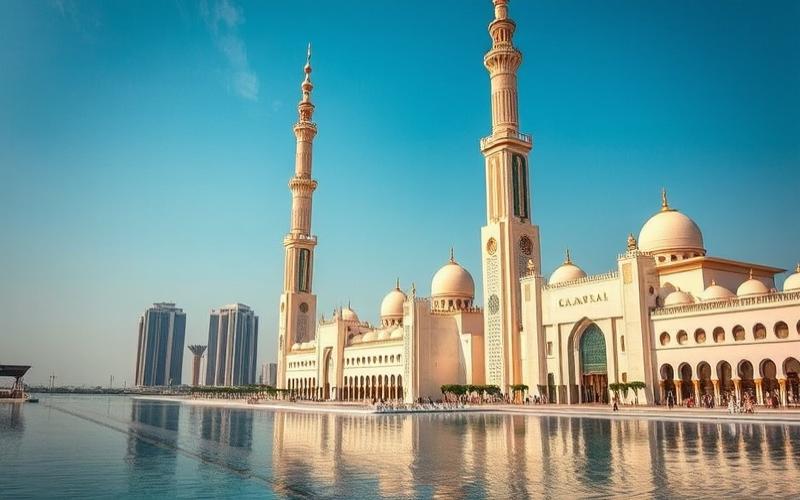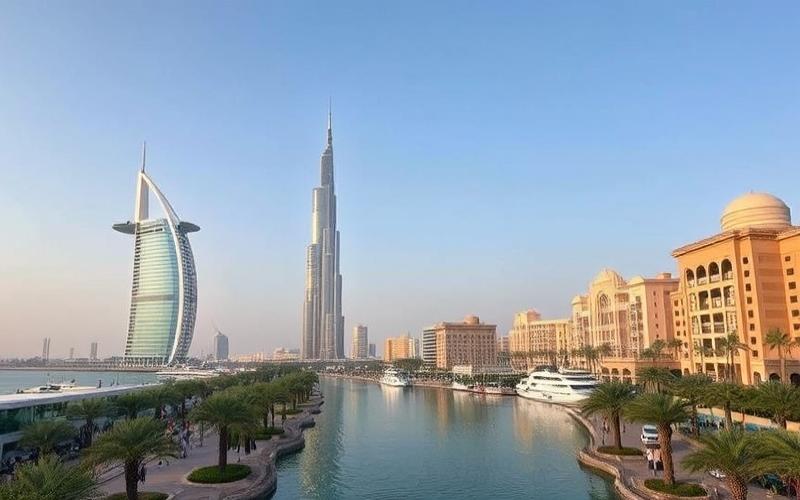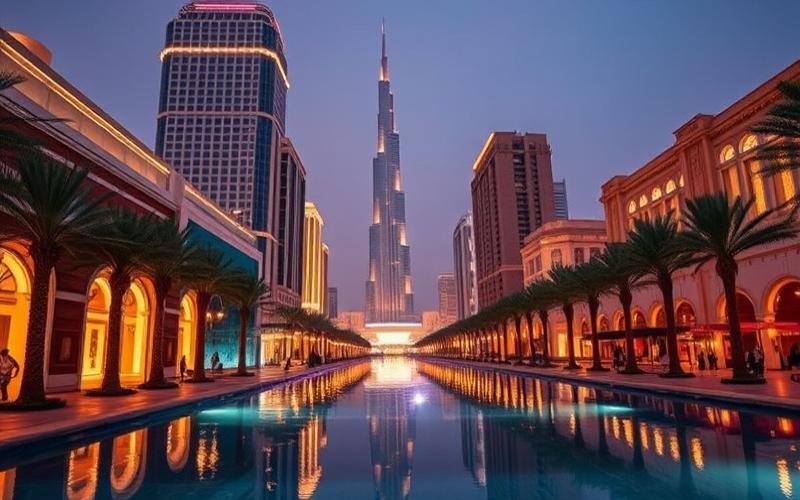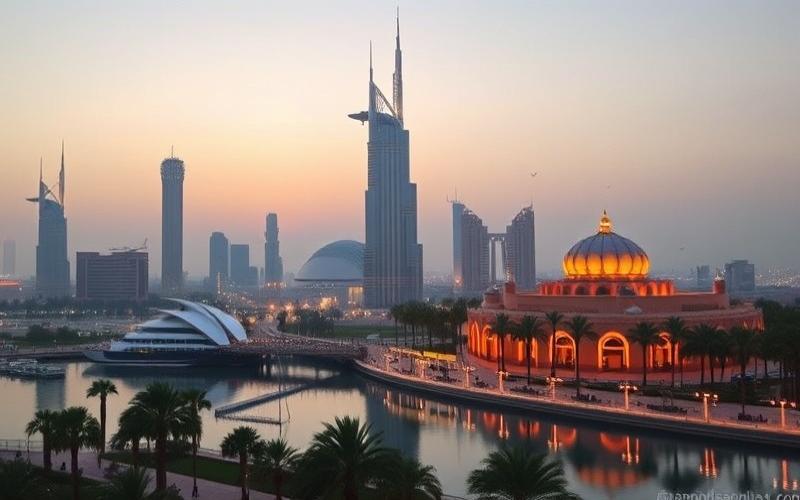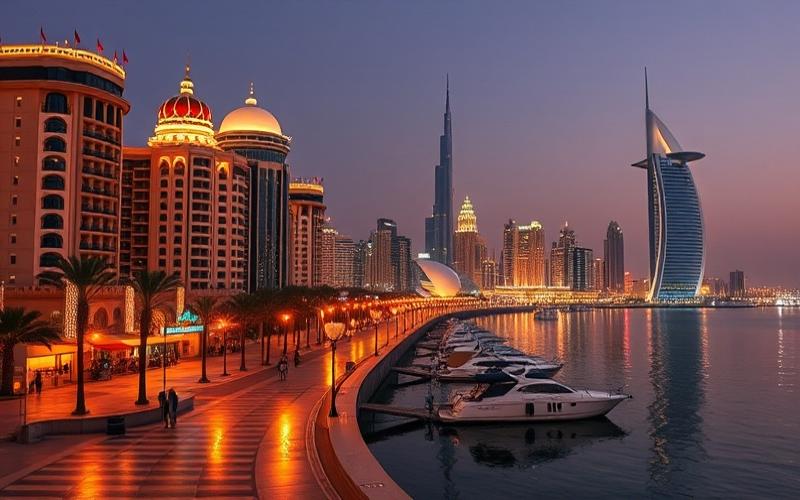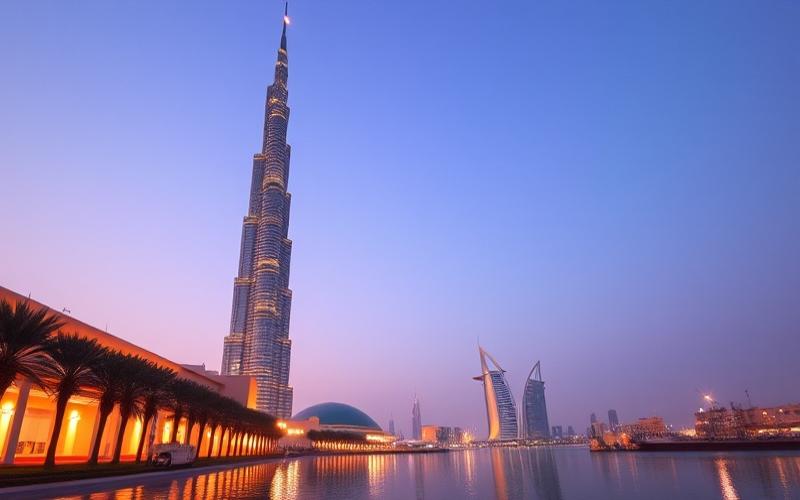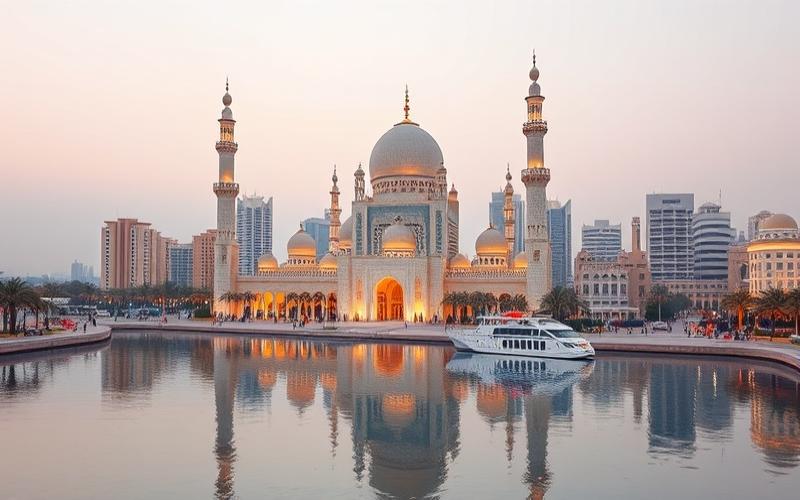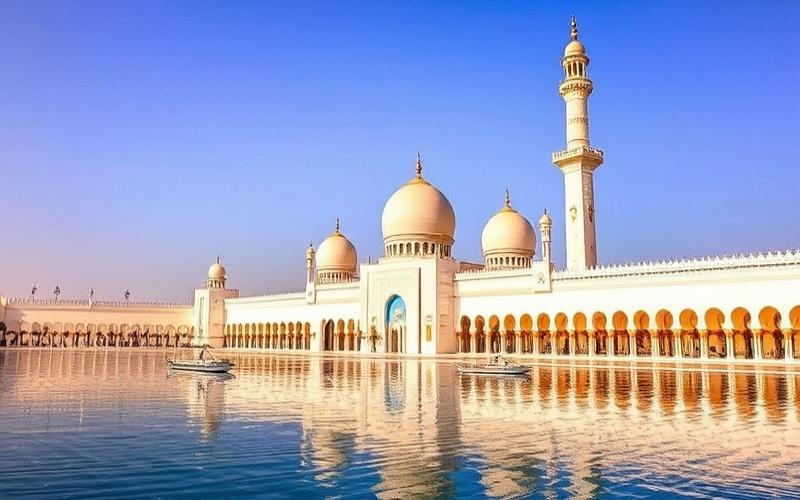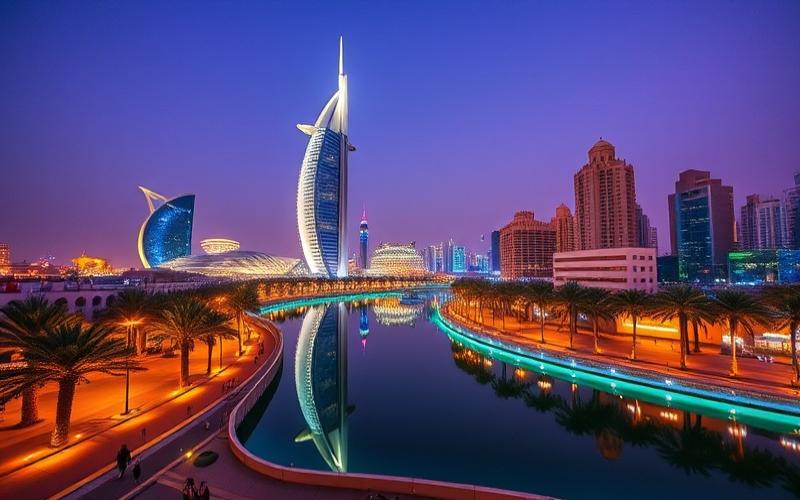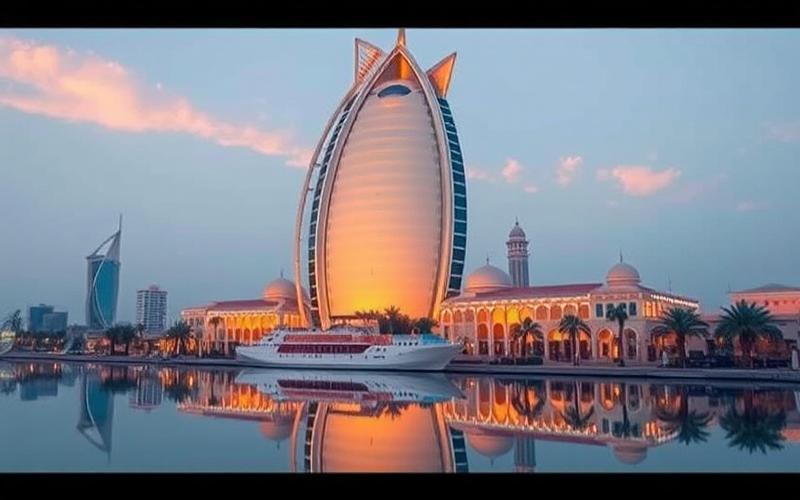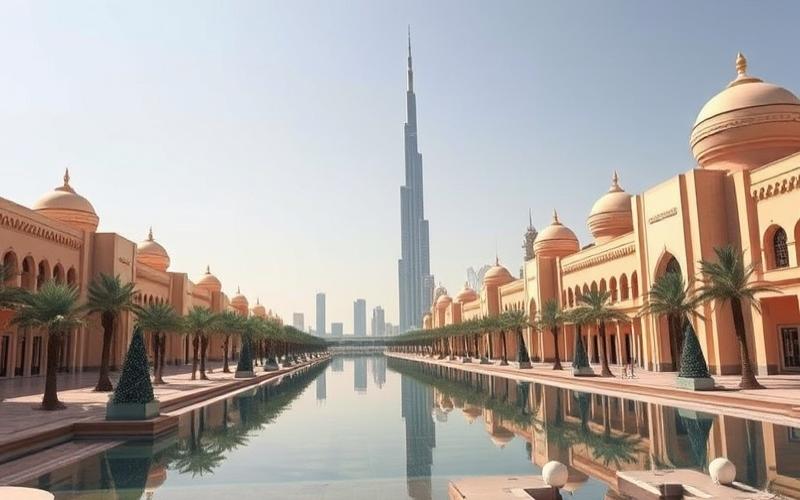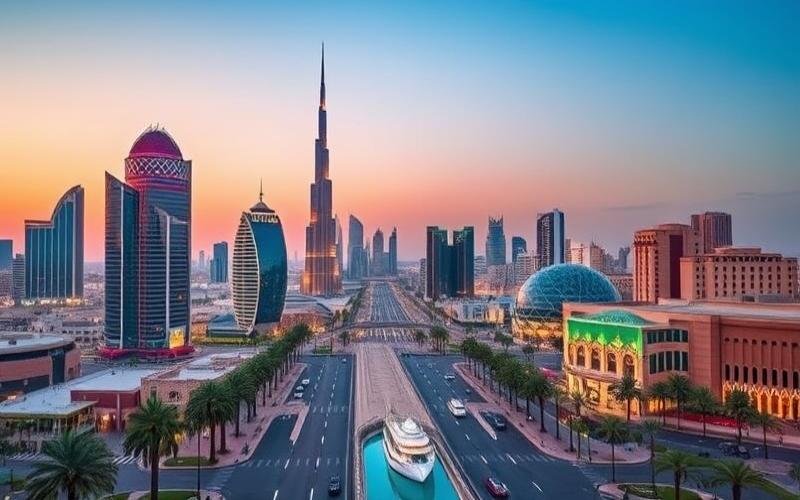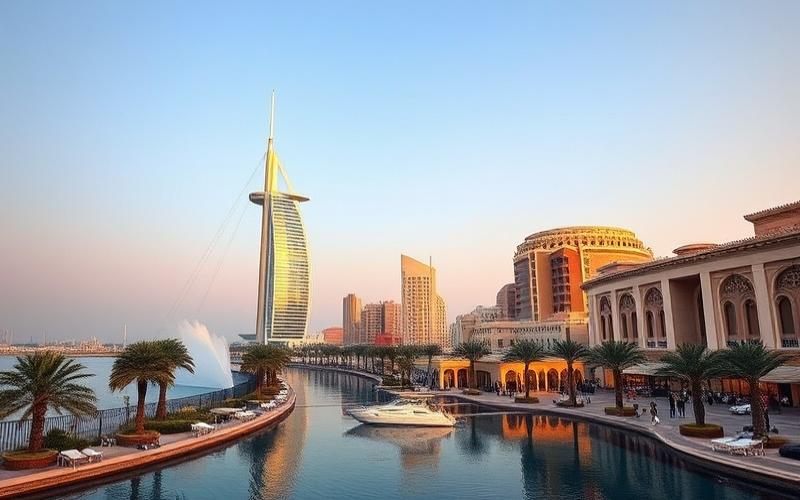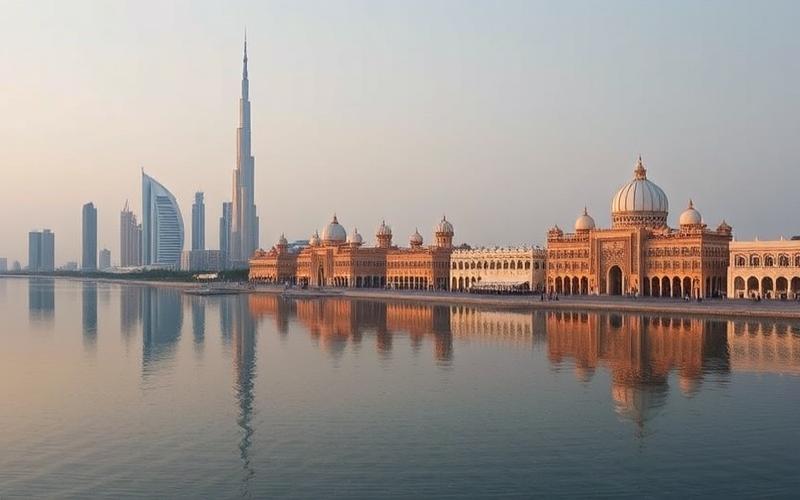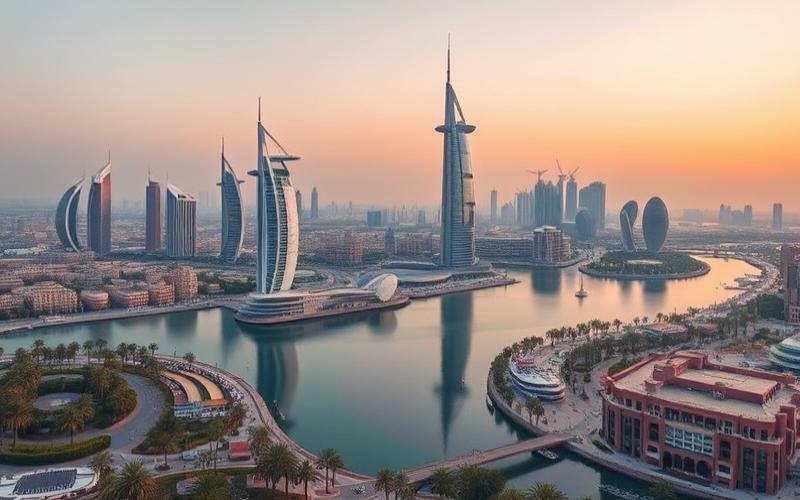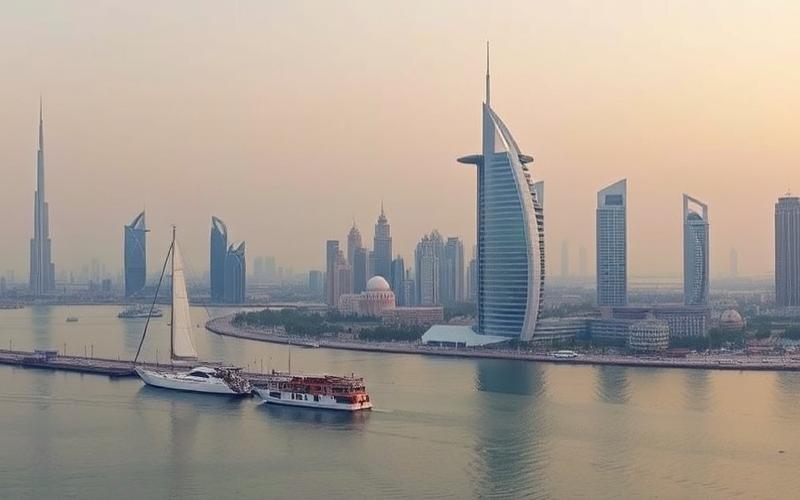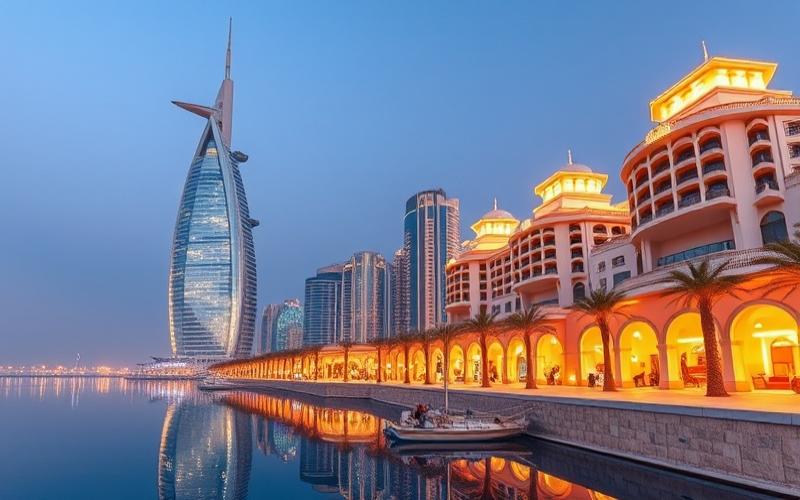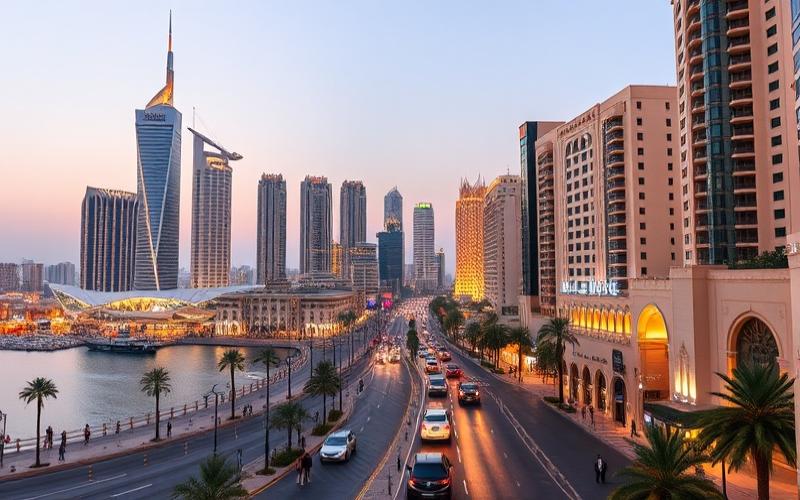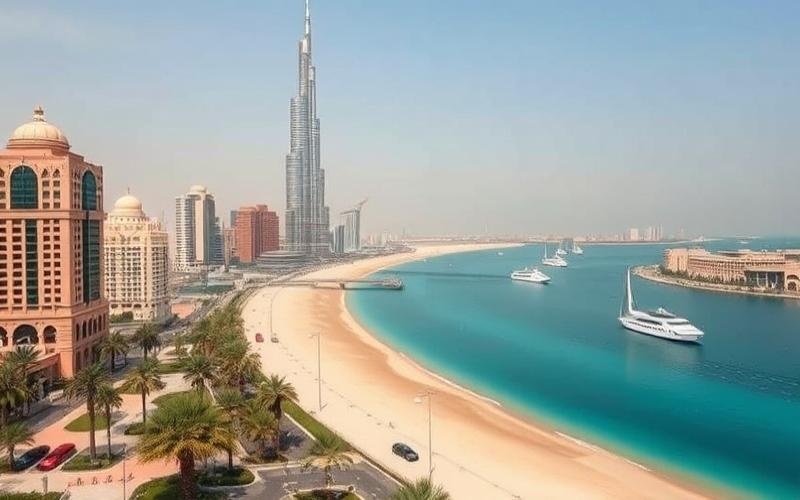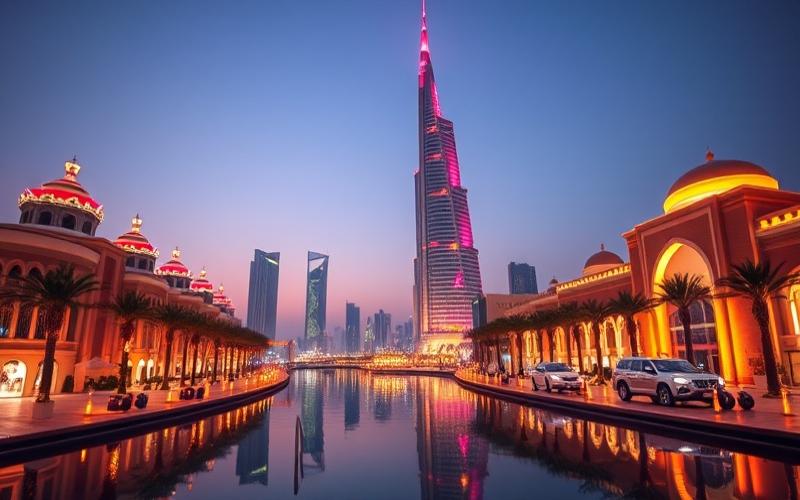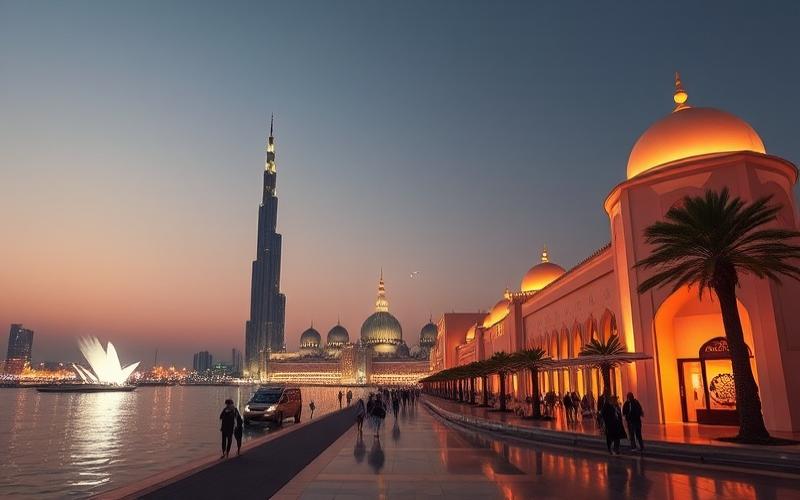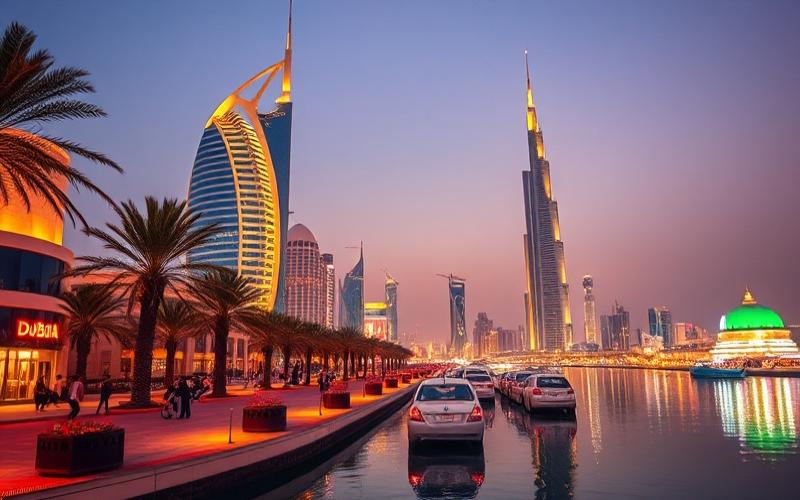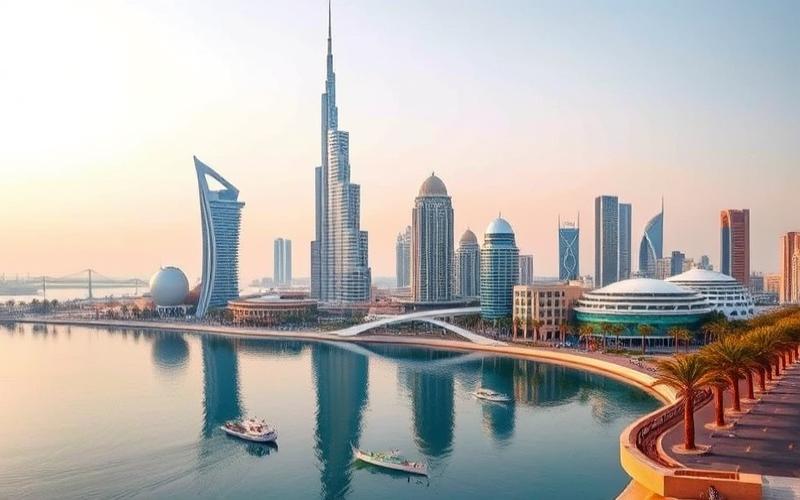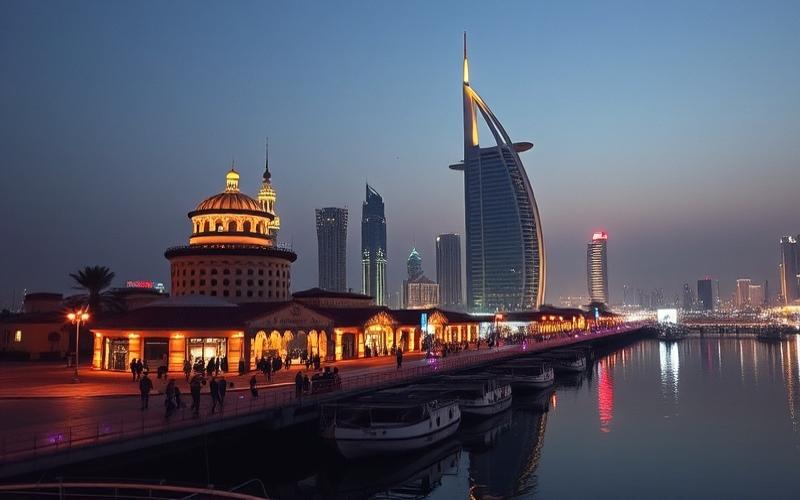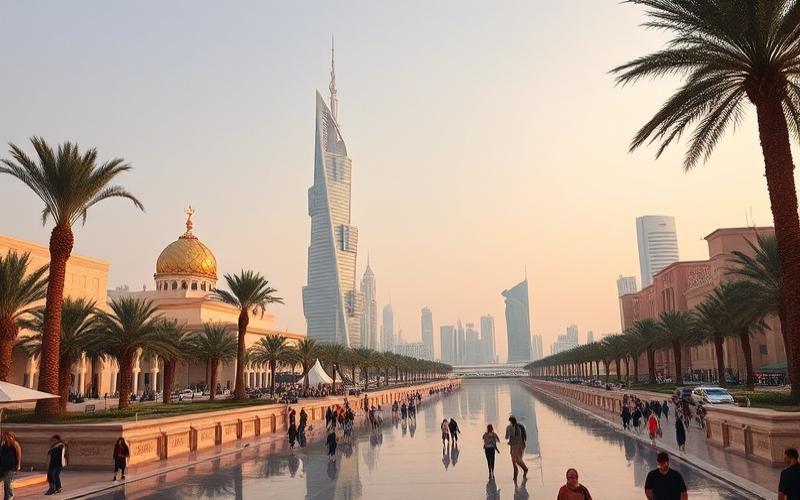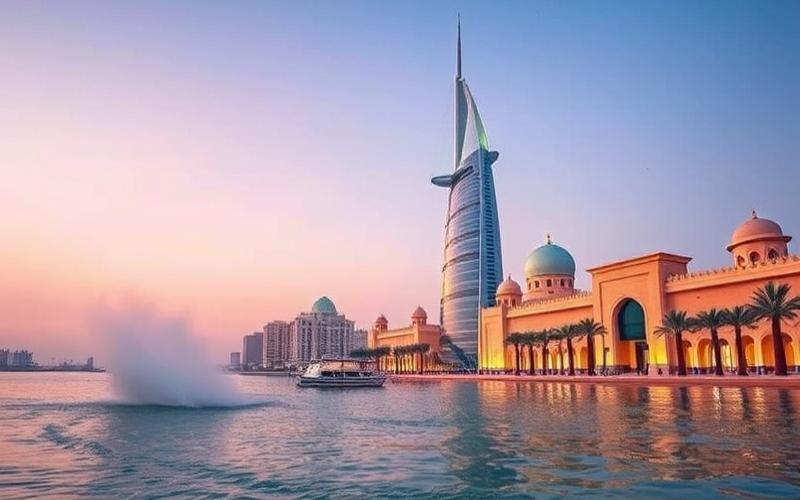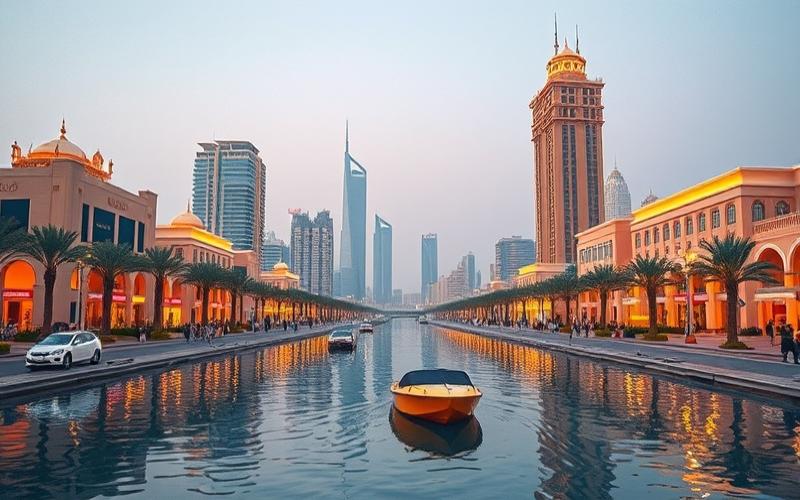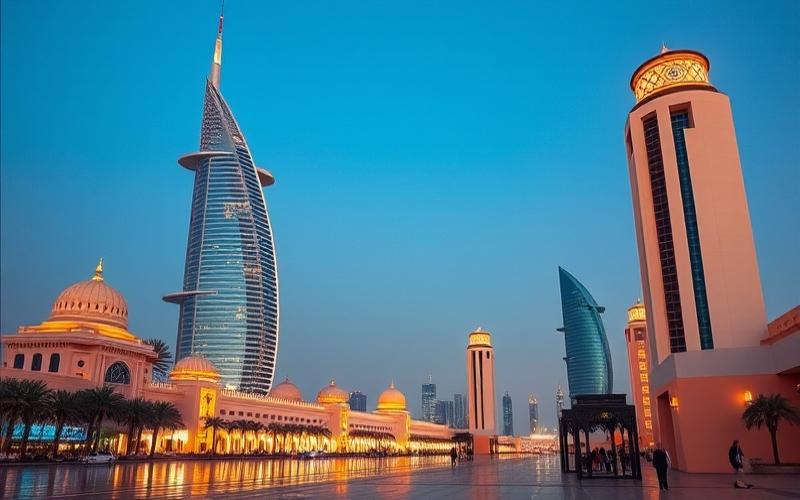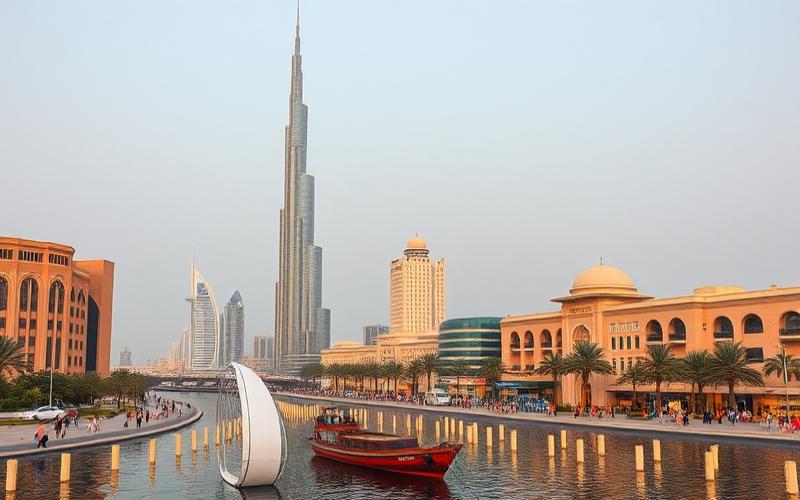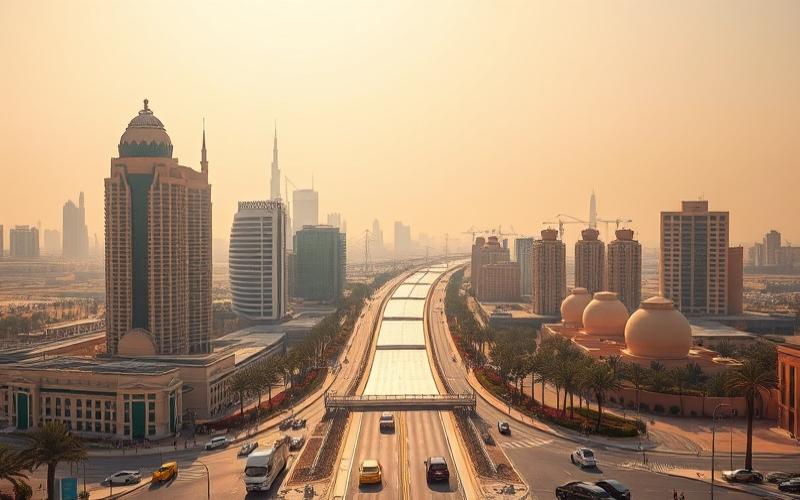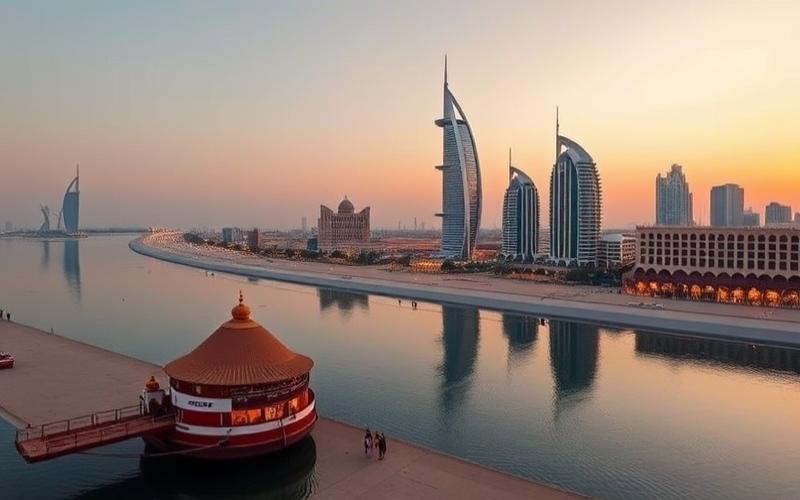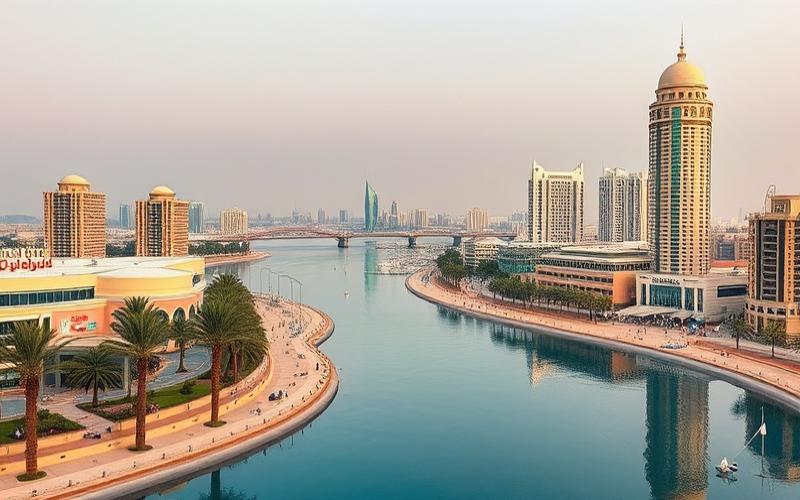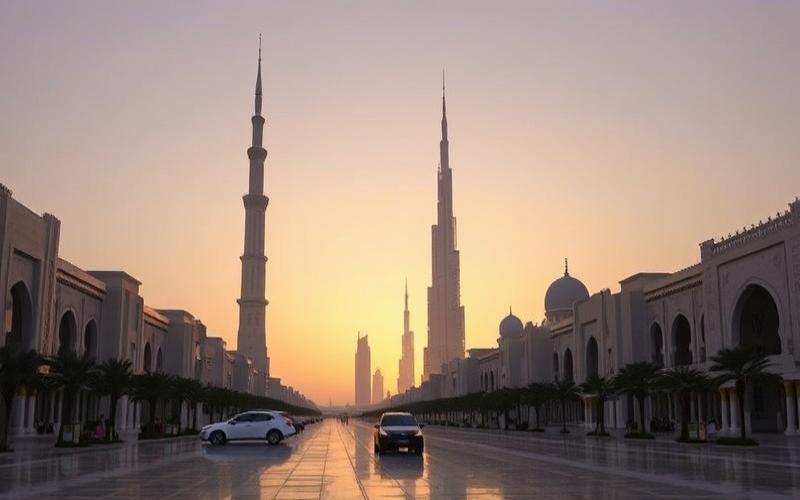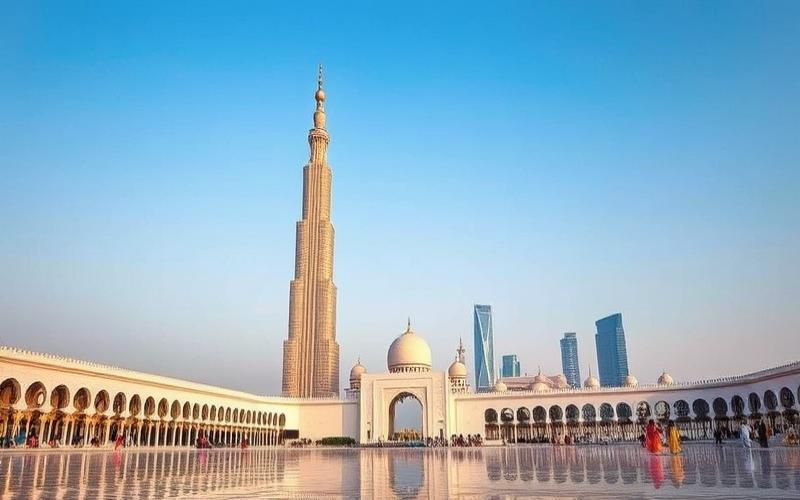
 Published on and written by Cyril Jarnias
Published on and written by Cyril Jarnias
By 2025, Dubai Bets on Green Real Estate
Dubai is firmly positioning itself at the forefront of sustainable development with the adoption of green real estate, aiming to build environmentally friendly structures at the heart of this futuristic metropolis.
A Necessary Ecological Transition
Facing traditional construction practices, often energy-intensive, the Emirati city is implementing new regulatory standards and offering incentive subsidies to encourage developers to adopt ecological solutions that reduce carbon footprint.
Good to Know:
Green buildings in Dubai can benefit from tax reductions and internationally recognized environmental certifications.
A Global Model of Sustainability
In this article, dive into exploring innovative initiatives and ambitious policies aimed at making Dubai a global model for sustainable buildings, while improving the quality of life for its residents.
Dubai’s Green Building Standards: 2025 Regulations and Perspectives
Dubai is firmly committed to a more sustainable future with the introduction of strict green building regulations. The Emirati construction sector is undergoing significant transformation, guided by ambitious initiatives aimed at reducing buildings’ environmental footprint while improving residents’ quality of life.
Current Regulatory Framework and Developments
Dubai’s Green Building Regulations form the foundation of green building standards in the emirate. This framework has been strengthened by the introduction of the Dubai Building Code (DBC) which unifies building design across the emirate by establishing minimum requirements for health, safety, welfare, and environmental impact. The DBC provides detailed technical guidelines to ensure sustainable development and reduce the ecological footprint of new constructions.
By 2025, these regulations are part of a broader sustainability vision, aligned with the United Arab Emirates’ ambitious goal of achieving carbon neutrality by 2050.
Specific Requirements for Green Construction
| Area | Requirements | Implementation |
| Energy Efficiency | Significant reduction in energy consumption | Optimized architectural design, high-performance insulation |
| Sustainable Materials | Use of ecological and recycled materials | Priority to local and certified suppliers |
| Resource Management | Water conservation, waste reduction | Integrated recycling systems, greywater recovery |
| Renewable Energy | Mandatory integration in new projects | Solar panels, geothermal systems |
2025 Innovations and Trends
Biophilic design represents a major trend in Dubai’s green building for 2025. This approach incorporates green walls, indoor plants, and maximizes natural light intake, creating a harmonious connection between built spaces and nature. This trend not only meets environmental requirements but also enhances occupant well-being.
Certifications and Recognition
Projects meeting green building standards can obtain various certifications, including:
- Al Sa’fat Certification (local green building rating system)
- LEED (Leadership in Energy and Environmental Design)
- BREEAM (Building Research Establishment Environmental Assessment Method)
These certifications enhance real estate projects’ market value and ensure compliance with international sustainability standards.
Impact on Urban Environment and Quality of Life
The rigorous application of green building standards is gradually transforming Dubai’s urban landscape. Expected benefits include:
- Significant reduction in construction sector carbon emissions
- Improved air quality in urban areas
- Reduction of urban heat island effect
- Creation of healthier and more comfortable living spaces
- Substantial long-term energy cost savings
“Sustainability is no longer an option but a necessity in Dubai’s construction sector.”
Labor law reforms accompany this ecological transition, ensuring fair conditions for construction sector workers, with fair wages, adequate housing, and safety standard compliance, thus contributing to truly sustainable and ethical development.
Good to Know:
In Dubai, 2025 green building standards impose demanding guidelines requiring the use of sustainable materials and integration of renewable energy infrastructure, with particular emphasis on solar energy. Local authorities have implemented measures like the Green Building Regulations and Specifications, requiring new constructions to achieve high energy efficiency, particularly through thermal insulation and smart energy management systems. Furthermore, compliant projects can obtain certifications such as LEED (Leadership in Energy and Environmental Design), which enhances environmental commitment with international investors. These initiatives will not only help reduce the city’s carbon footprint but also improve residents’ quality of life by creating more pleasant and sustainable urban environments.
Renewable Energy Subsidies in Dubai
Renewable energy subsidies in Dubai take several forms and are part of a comprehensive strategy to transform the real estate market toward greater sustainability. Here’s an overview of available programs, concrete examples, involved organizations, eligibility criteria, and impacts on the sector.
Available Subsidy Types
- Direct subsidies granted to companies for installing solar equipment or constructing sustainable buildings.
- Installation cost reductions through government programs (“Shams Dubai,” “Small-scale Solar PV Energy Netting”).
- Tax incentives and regulatory relief in certain free zones, particularly for real estate companies investing in renewable energy.
- Innovation prizes through awards like the Emirates Energy Award that recognize exemplary projects in energy efficiency or solar adoption.
Concrete Examples of Beneficiary Real Estate Projects
- Large residential and office complexes located in Dubai South Free Zone have received specific subsidies when integrating photovoltaic panels or smart energy management systems.
- The Al Dhafra Solar PV plant (2 GW), although regional, illustrates the local real estate sector’s ability to indirectly benefit from massive green energy supply.
- Buildings connected to the “Shams Dubai” network directly benefit from net metering: they deduct their own solar production from their electricity bills.
Organizations Involved in Granting Subsidies
| Organization | Main Role |
|---|---|
| Dubai Electricity & Water Authority (DEWA) | Management of solar incentive programs |
| Supreme Council of Energy | Strategic coordination |
| Free Zones (Dubai South Free Zone…) | Local tax relief & logistical support |
| Emirates Water and Electricity Company (Ewec) | Large solar project deployment |
Eligibility Criteria and Process
- Be registered as an active real estate developer in Dubai or company operating in dedicated free zone.
- Present a project integrating significant renewable energy share (photovoltaic panels, passive solutions…).
- Comply with local environmental standards defined by DEWA/Supreme Council of Energy.
Process:
- Application submission to DEWA/concerned free zone with detailed technical study
- Evaluation by specialized committee based on innovation, expected performance and financial viability criteria
- Potential allocation subject to strict monitoring during implementation
Potential Impact on 2025 Green Real Estate Market
Implemented incentives are significantly accelerating the transition toward a low-carbon real estate portfolio:
- Multiplication of real estate launches displaying “green building” label
- Enhanced attractiveness for international investors sensitive to ESG criteria
- Effective reduction in final cost related to green technologies through combined aids
We already observe sustained growth in permits issued for constructions with solar installations; this dynamic should intensify until 2025 with the announced local objective: 100% renewable urban energy mix.
Complementary Incentive Measures
- Partial/complete exemptions on certain local taxes for several years after successful green installation
- Privileged access to certain public tenders reserved for developers committed to sustainable development
- Commercial promotion through official labels (“Green Certified by DEWA,” etc.)
- Dedicated educational programs within free zones so developers master recent energy innovations
All these measures create a snowball effect favorable not only to rapid greening of built heritage but also to the competitive international positioning of Dubai’s real estate market.
Good to Know:
In Dubai, several types of subsidies encourage renewable energy integration in real estate, with particular emphasis on projects using solar and energy efficiency technologies. Initiatives like those from Dubai Electricity and Water Authority (DEWA) financially support innovative projects such as the Sustainable City residential complex, illustrating the positive impact of these measures. These subsidies are mainly granted by DEWA, in partnership with private actors, subject to rigorous energy efficiency and sustainability criteria. Developers must, among other things, demonstrate the use of sustainable materials and sufficient technological integration to be eligible. By 2025, these measures should contribute to significant expansion of Dubai’s green real estate market, with tax incentives and community rate reductions being essential levers to accelerate adoption of green practices in local construction.
BREEAM Certification: A Standard for the Future
BREEAM certification is establishing itself as an essential standard in the global real estate sector, with 2.33 million buildings registered in 102 countries and 610,000 certified to date. This sustainability assessment method, leading for over 30 years, is profoundly transforming construction and real estate management approaches.
In Dubai, this certification is gaining importance, as evidenced by the Tilal Al Ghaf project which obtained “BREEAM Excellent” certification in 2023. This recognition underscores the developer’s commitment to supporting Dubai’s 2040 Urban Master Plan by creating sustainable spaces.
BREEAM assesses buildings’ environmental performance through a holistic approach covering several essential dimensions:
- Carbon emission reduction to net zero
- Performance across entire life cycle
- Health impact and social aspects
- Circularity and resilience
- Biodiversity
- Disclosures and reporting
This certification applies to all project phases, from design to construction, through use and renovation, ensuring continuous improvement of real estate assets’ performance.
BREEAM Certification Benefits
| Benefits | Description |
|---|---|
| Commercial Success | Development of higher-performing assets, increased value and risk mitigation |
| Confidence | International recognition, third-party assurance, effective data management and reliable benchmarking |
| Positive Impact | Credible scientific framework to guide decisions and facilitate reporting on international commitments |
BREEAM Awards 2025
The BREEAM Awards 2025, to be held on June 5 at The Peninsula Hotel in London, will celebrate pioneering projects and organizations in sustainable building design, development, and management worldwide. The addition of four new categories demonstrates this certification’s continuous expansion and adaptation to sector evolution.
“The BREEAM Awards are an important moment in our industry’s calendar where we recognize the most remarkable achievements in sustainable building design, development, and management worldwide.”
— Jane Goddard, Managing Director, Building Products and Services (BPS) and Deputy CEO of BRE
In Dubai, BREEAM perfectly aligns with the city’s sustainability ambitions, contributing to achieving the 2040 Urban Master Plan objectives. This synergy fosters the emergence of innovative projects that address environmental challenges while creating economic value.
BREEAM’s future looks promising, with constant evolution to integrate the latest sustainability innovations and adapt to emerging regulations. The certification will continue playing a crucial role in transforming Dubai’s real estate landscape toward a more environmentally respectful and socially responsible model.
Good to Know:
BREEAM certification is gaining popularity in Dubai, establishing itself as a pillar of the sustainable real estate sector. By assessing criteria like energy efficiency, water management, and sustainable material use, BREEAM guides the construction of green buildings aligned with the city’s sustainable development goals. It offers developers and investors tangible benefits such as international recognition and increased property value. With planned support for 2025, including potential subsidies, BREEAM could integrate new innovations and regulations, strengthening its role in Dubai’s green real estate.
How Dubai Encourages Green Real Estate
Dubai’s government has implemented a series of initiatives and policies to promote green real estate, integrating strict environmental standards, economic incentives, and ambitious public-private collaborations.
Main Environmental Regulations and Standards
- Energy efficiency requirements for new constructions: obligation to integrate low-consumption systems (LED lighting, advanced thermal insulation).
- Mandatory use of certified sustainable materials in new buildings.
- Systematic integration of solar solutions and smart technologies (green home automation) in residential and commercial projects.
- Application of Dubai Green Building Regulations & Specifications (DGBR), imposing high standards on water management, waste reduction, indoor air quality.
Subsidies and Tax Incentives
- Tax reductions on registration fees for developers meeting or exceeding local ecological criteria.
- Direct subsidies or financial aid for installing eco-energy equipment (photovoltaic panels, geothermal systems).
- Priority in administrative processing for permit acquisition when project is labeled “green building.”
Public/Private Collaborations
Major green real estate projects often result from synergy between public and private sectors:
- Development of Dubai Urban Tech District: a hub dedicated to technology companies focused on artificial intelligence research, green robotics and sustainable technologies. This project fosters local circular economy through its collaborative ecosystem.
- Partnerships with startups specialized in smart energy management or recycling integrated into recent residential neighborhoods.
Ecological Goals Set by Dubai for 2025 in Real Estate Sector
| Ecological Goal | Description |
|---|---|
| Overall Consumption Reduction | Lower annual energy demand |
| “Green” Certified Construction | 100% new buildings DGBR compliant |
| Increased Green Spaces | +20% area dedicated to urban vegetation |
| Carbon Neutrality | Achieve net zero emissions for new projects |
Iconic Examples: Applied Initiatives
Dubai Urban Tech District
Nerve center bringing together R&D offices dedicated to sustainable development where each building integrates solar panels, greywater recovery and bio-sourced materials.
The Loop
93 km covered cycling-pedestrian infrastructure connecting major neighborhoods under climate control: low-carbon design with renewable energy intended to encourage soft mobility while improving urban quality.
Green Residential Neighborhoods
New real estate complexes equipped with:
- Green roofs
- Automatic rainwater collection
- Advanced home automation systems optimizing heating/cooling
Dubai’s focus on sustainable innovation positions its real estate market as a global reference through a unique combination: demanding regulation, targeted economic support & multisectoral cooperation.
Good to Know:
Dubai encourages green real estate by establishing strict energy efficiency standards and requiring sustainable material use in new constructions. The government offers attractive subsidies and tax incentives for developers integrating ecological practices. Initiatives like the “Green Building Regulations” program set standards to reduce buildings’ carbon footprint. Public-private collaborations are multiplying to accelerate sustainable project development, aligned with Dubai’s green goals by 2025 horizon. Inspiring examples include Dubai’s sustainable city district and Mohammed bin Rashid Al Maktoum Solar Park, perfectly illustrating alignment with these guidelines.
Disclaimer: The information provided on this website is for informational purposes only and does not constitute financial, legal, or professional advice. We encourage you to consult qualified experts before making any investment, real estate, or expatriation decisions. Although we strive to maintain up-to-date and accurate information, we do not guarantee the completeness, accuracy, or timeliness of the proposed content. As investment and expatriation involve risks, we disclaim any liability for potential losses or damages arising from the use of this site. Your use of this site confirms your acceptance of these terms and your understanding of the associated risks.

